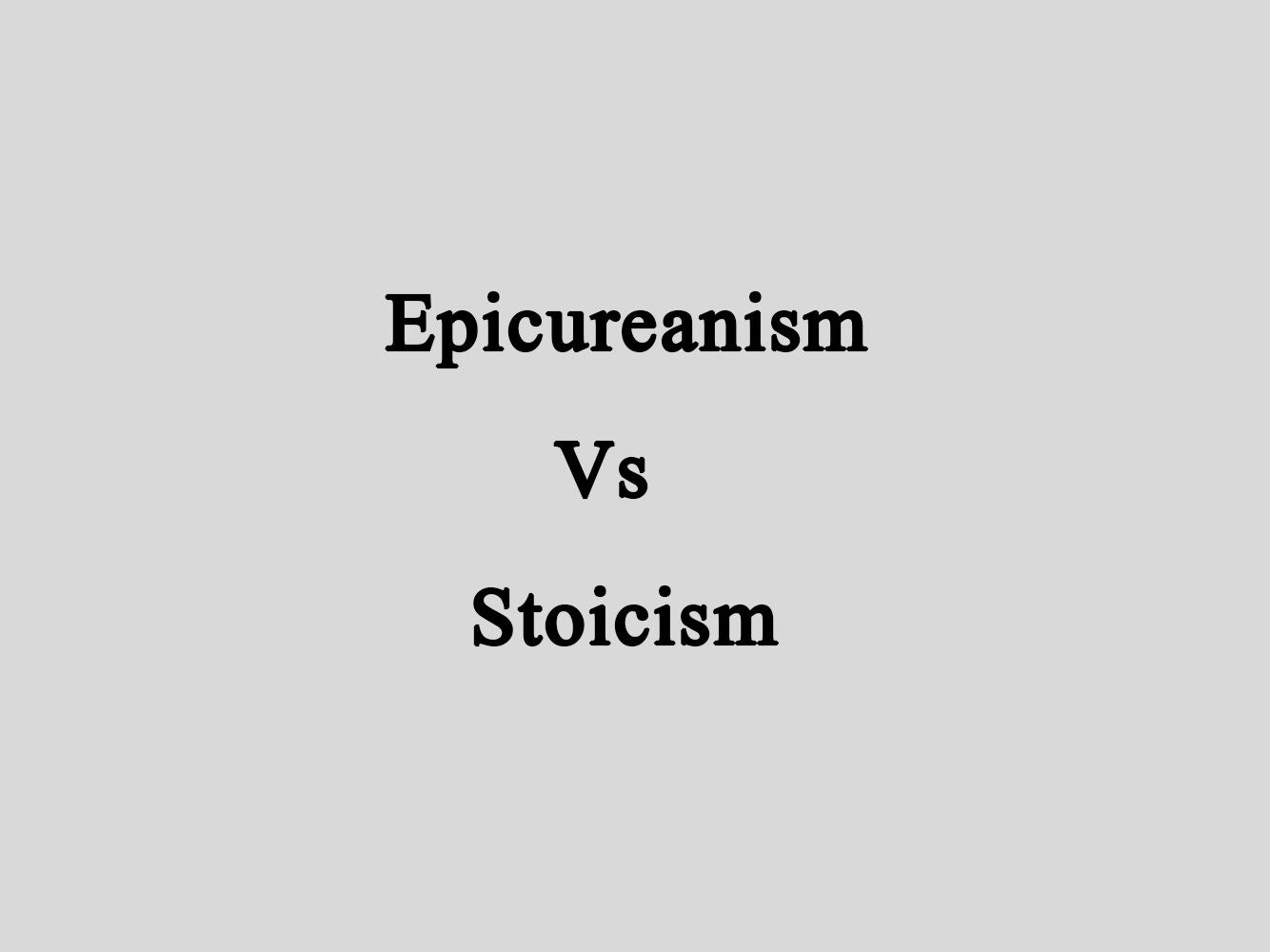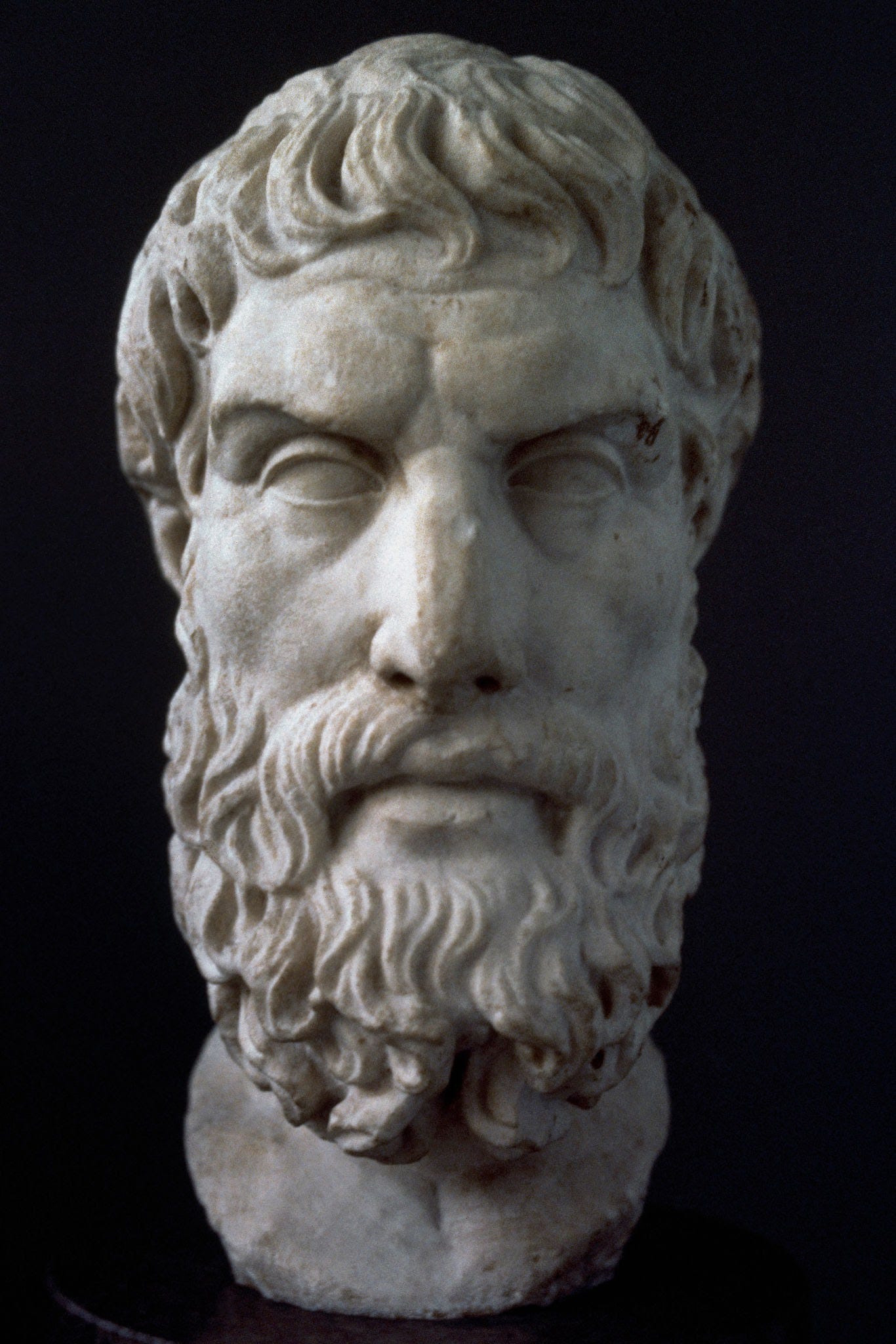Epicureanism vs Stoicism (A Comparative Analysis)
: The Similarities and Differences between Two Influential Philosophical Systems.
Philosophy has long been an integral part of human history, playing a crucial role in shaping our understanding of the world and our place in it. It provides us with a framework for considering questions about the meaning of life, the nature of reality, and our ethical and moral responsibilities. Among the many philosophical systems that have arisen throughout history, Epicureanism and Stoicism are two of the most well-known and influential. These two schools of thought offer different perspectives on how to live a fulfilling life and achieve happiness. Epicureanism emphasizes the pursuit of pleasure and peace of mind as the ultimate goal of human existence, while Stoicism focuses on the cultivation of virtue and wisdom as the means to a virtuous and peaceful life. In this article, we will explore the similarities and differences between these two philosophical systems, and consider why an understanding of Epicureanism and Stoicism is still important in our modern world.
What is Epicureanism?
Epicureanism is a philosophical system founded by the Greek philosopher Epicurus in the fourth century BCE. It is based on the idea that the ultimate goal of human existence is to achieve pleasure and peace of mind (ataraxia). Epicureans believe that pleasure is the natural goal of human behavior and that pain should be avoided, as it is an obstacle to pleasure. They also emphasize the importance of wisdom and self-discipline in achieving ataraxia. Epicureans believe that pleasure can be achieved through the elimination of pain and the avoidance of excessive desires, and that wisdom and self-discipline are necessary for avoiding pain and maximizing pleasure.
Additionally, Epicureans are empiricists, who believe that knowledge can only be acquired through sensory experience, and that the gods do not intervene in human affairs and death is nothing to be feared. The Epicurean philosophy offers a practical approach to life, focusing on the cultivation of pleasure, peace of mind, and wisdom.
"Pleasure is the first good naturally endowed in us. Every pleasure is worthy of choice, every pain of avoidance." - Epicurus
Epicureanism was founded by the Greek philosopher Epicurus. He was born on the island of Samos in 341 BCE and later moved to Athens where he established his own school of philosophy. Epicurus was a prolific writer, and his philosophical ideas were widely disseminated in the ancient world. He is best known for his teachings on pleasure, the elimination of pain, and the importance of wisdom and self-discipline in achieving ataraxia. Epicurus believed that happiness was the ultimate goal of human existence and that it could be attained by cultivating wisdom and avoiding excessive desires. His teachings had a profound impact on ancient thought and continue to be studied and discussed to this day.
What is Stoicism?
Stoicism is a philosophical system that originated in ancient Greece and was later developed and popularized by the philosopher, Zeno of Citium, in the early 3rd century BCE. It emphasizes the development of self-control and fortitude as a means of overcoming destructive emotions and achieving inner peace. Stoics believe that the universe is rational and governed by natural laws, and that all events, regardless of their apparent good or bad nature, are ultimately part of a larger, divinely ordained plan. As a result, they emphasize the importance of accepting what is beyond our control and focusing instead on cultivating our own virtues and character. Stoicism teaches that the path to happiness lies in developing a clear understanding of the world and our place in it, and in living a virtuous life in accordance with reason. The Stoic philosophy offers a practical guide for living a virtuous and fulfilling life, even in the face of difficult circumstances.
"The only thing that is intrinsically good is a good will; everything else has value only in its relation to that will." - Immanuel Kant
Differences:
The two philosophical systems also differ in their views on the role of the gods in the world. Epicureans believe that the gods do not intervene in human affairs and death is nothing to be feared. Stoics, on the other hand, believe that the gods are a part of the natural order and that we should live in harmony with their will. Stoics view the gods as rational beings who govern the universe according to reason and believe that we should strive to live in accordance with this divine reason.
Another key difference is in their epistemological views. Epicureans are empiricists and believe that knowledge can only be acquired through sensory experience. Stoics place greater emphasis on reason and the power of the mind to understand the world. They believe that reason is the foundation of knowledge and that the mind has the capacity to understand the world and the divine order that governs it.
Strengths and Weaknesses:
While both Epicureanism and Stoicism have their strengths, they also have their limitations. Epicureanism's emphasis on pleasure as the ultimate goal of human life can be seen as a form of hedonism, which many argue is a self-centered and superficial view of the good life. On the other hand, Stoicism's focus on virtue and inner peace can be seen as overly ascetic and neglectful of the importance of pleasure in human life.
Epicureanism and Stoicism are distinct philosophical systems with different views on the nature of pleasure and pain, the role of the gods, and the pursuit of wisdom and virtue. Understanding these differences can provide a deeper appreciation of both systems and their contributions to Western thought. Both Epicureanism and Stoicism have had a lasting impact on Western philosophy and culture and continue to be relevant today as we continue to explore the nature of pleasure, pain, and the good life. Whether we agree with the views of Epicurus or Zeno, their ideas have helped to shape the Western philosophical tradition and continue to influence our understanding of the world and our place in it.
Practicing Stoicism and Epicureanism in daily life can bring a sense of peace, purpose, and fulfillment to one's existence. These two ancient philosophical systems offer different yet complementary perspectives on how to live a good life. While Stoicism emphasizes the cultivation of virtue and inner peace, Epicureanism prioritizes pleasure and peace of mind as the ultimate goal of human existence. Incorporating the principles and teachings of both Stoicism and Epicureanism into one's life can help to balance and enhance one's overall well-being and happiness.
Here are some ways you can apply and practice each of these philosophical systems:
Epicureanism:
Pursue pleasure and peace of mind (ataraxia) as the ultimate goal of life.
Avoid excessive desires and seek to eliminate sources of pain.
Cultivate wisdom and self-discipline to achieve ataraxia.
Embrace a simple and moderate lifestyle to minimize the potential for pain and maximize pleasure.
Focus on enjoying life's simple pleasures, such as spending time with friends and family, engaging in leisure activities, and appreciating the natural world.
Stoicism:
Cultivate virtue and moral character by striving to live in accordance with reason.
Focus on inner peace and equanimity, regardless of external circumstances.
Seek to cultivate a sense of detachment from material possessions and external events.
Embrace a philosophy of acceptance and seek to accept things as they are.
Cultivate resilience and the ability to bounce back from setbacks by focusing on what can be controlled and accepting what cannot.
After all, Epicureanism and Stoicism are two powerful philosophical systems that offer valuable insights into the nature of pleasure, pain, and the good life. While it may be easy to read about these ideas and to understand the key concepts and principles, putting them into practice can be much more challenging. It takes time, effort, and commitment to cultivate the wisdom and self-discipline required to achieve the goals of these systems. However, the rewards of practicing Epicureanism or Stoicism are well worth the effort. By pursuing pleasure and peace of mind, or by striving for virtue and inner peace, we can lead richer, more meaningful lives and find greater fulfillment and happiness. So, embrace the challenge and embrace the journey, and start applying the wisdom of Epicureanism or Stoicism in your own life today.






